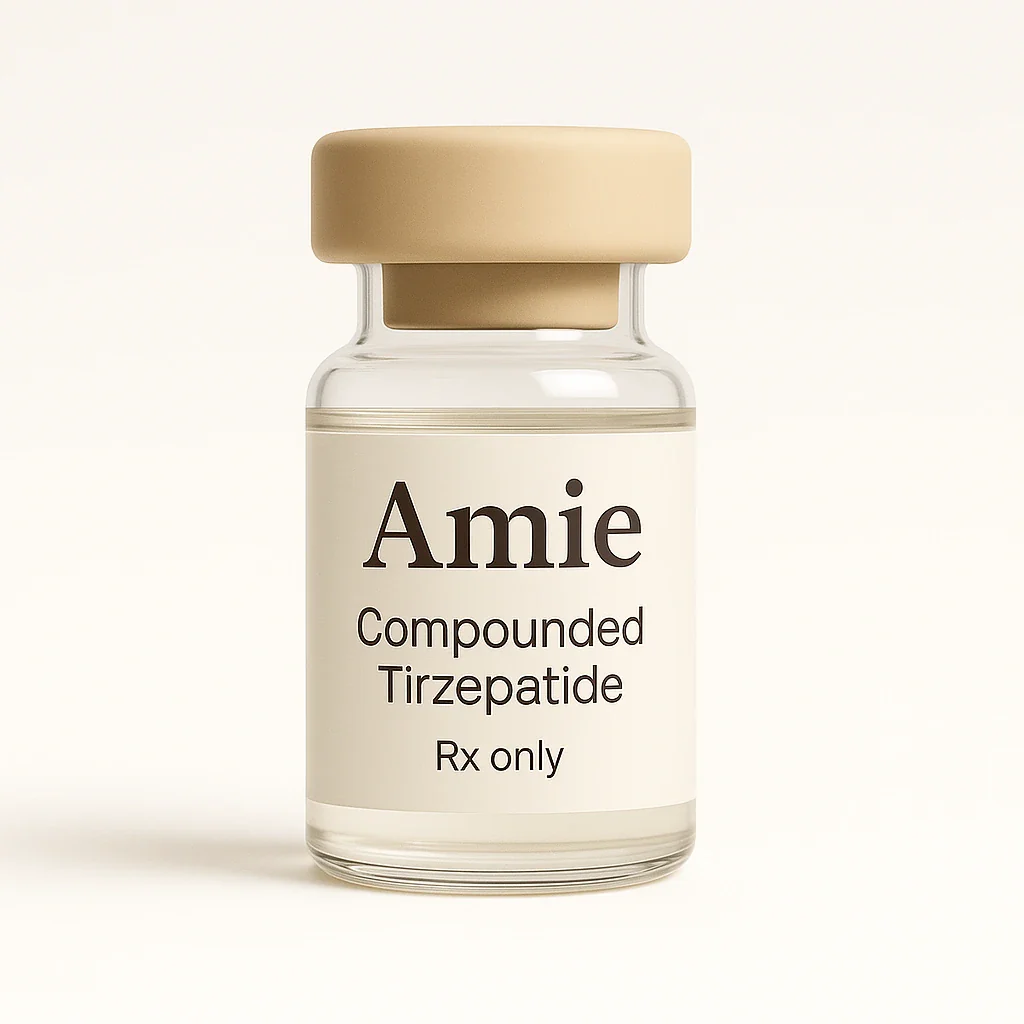How Prebiotics Affect Appetite Hormones

Prebiotics, found in foods like garlic, onions, and bananas, play a crucial role in managing hunger hormones by improving gut health. They help regulate ghrelin (the hunger hormone) and enhance leptin sensitivity (the fullness hormone). Here's how:
- Gut Microbiome Support: Prebiotics feed beneficial gut bacteria like Bifidobacteria and Lactobacilli, promoting a balanced gut environment.
- Short-Chain Fatty Acids (SCFAs): These are produced during fermentation and help lower ghrelin, increase satiety hormones, and improve leptin function.
- Gut-Brain Axis: Prebiotics enhance communication between the gut and brain via the vagus nerve and reduce inflammation, leading to better appetite control.
Adding prebiotics to your diet, through foods like chicory root or green bananas, may help with hunger management and weight regulation. Always consult a healthcare provider before making dietary changes.
From gut microbiota to host appetite: gut microbiota-derived ...
Prebiotic Effects on the Body
Changes in Gut Bacteria Levels
Prebiotics can reshape the gut microbiome by encouraging the growth of specific bacterial strains that play a role in appetite regulation. Research shows that regular intake of prebiotics increases levels of Bifidobacteria and Lactobacilli - two groups of bacteria crucial for digestion and maintaining hormone balance.
As these bacteria grow, they help create a stable intestinal environment that supports proper hormone signaling. At the same time, they suppress harmful bacteria that can disrupt appetite control. This shift leads to fermentation processes that produce short-chain fatty acids (SCFAs), which are essential for gut health.
Short-Chain Fatty Acids and Hormones
When gut bacteria ferment prebiotics, they generate SCFAs like acetate, propionate, and butyrate. These compounds act as important messengers between the gut and systems that regulate appetite.
| SCFA Type | Primary Effect | Impact on Appetite Hormones |
|---|---|---|
| Acetate | Enters the bloodstream | Lowers ghrelin (hunger hormone) |
| Propionate | Stimulates gut cells | Promotes satiety hormone release |
| Butyrate | Supports gut lining | Improves leptin sensitivity |
These SCFAs slow digestion and help maintain a feeling of fullness, improving communication between the gut and the brain.
Gut-Brain Communication
SCFAs also enhance the connection between the gut and the brain, refining how the body processes hunger and fullness signals. This relationship, known as the gut-brain axis, links digestion directly to appetite control. It works through:
- Vagus Nerve Activation: SCFAs stimulate vagal nerve endings in the gut, sending satiety signals to the brain.
- Hormonal Changes: Prebiotic fermentation increases the release of hormones like GLP-1 and PYY, which play a role in appetite regulation.
- Reducing Inflammation: By promoting beneficial bacteria, prebiotics help lower gut inflammation that could interfere with hormone signaling.
This improved signaling system ensures the brain receives clear messages about energy needs, helping to prevent overeating.
sbb-itb-e032ee7
Prebiotic Impact on Hunger Hormones
Ghrelin Reduction
Prebiotics influence ghrelin production through the fermentation process carried out by gut microbes. During this process, short-chain fatty acids are produced, which signal stomach cells to lower ghrelin levels. This decrease in ghrelin helps to regulate hunger signals more effectively.
Leptin and Fullness Signals
Prebiotics also improve the body's response to leptin, the hormone responsible for signaling fullness after eating. By enhancing leptin sensitivity, prebiotics contribute to better appetite control, offering a natural way to manage hunger and support weight regulation.
Weight Control Through Prebiotics
Adding Prebiotics to Your Diet
In addition to their hormonal benefits, prebiotics can help with weight control by influencing appetite signals. You can boost your intake by incorporating foods rich in prebiotics or using supplements. Some great options include Jerusalem artichokes, chicory root, dandelion greens, and green bananas.
It's best to start with small amounts and gradually increase to give your digestive system time to adjust. This approach helps strengthen the link between gut health and weight regulation.
Conclusion: Prebiotics for Appetite Control
Main Points
Prebiotics work with gut bacteria to influence hormones like ghrelin and leptin, helping to improve hunger regulation and feelings of fullness. They also boost short-chain fatty acid production, which fine-tunes how hunger and satiety signals are processed. Research highlights how prebiotics can naturally support appetite control, paving the way for tailored health solutions.
Getting Started with Prebiotics
Before making changes to your diet or starting a weight management plan, it's important to consult a healthcare professional. Platforms like Amie offer tailored programs backed by clinical evidence. In fact, 90% of users have reported noticeable weight loss within just three months.
"I started at 222 pounds in April and now here we are in August and I am down over 40 pounds... I can't remember ever being this low. It's motivating me to do more things, like go to the gym and eat healthy. I swim a little bit more with the kids. It just gives me confidence. Which has been amazing. I'm so lucky to have found Amie." – Jamie, Amie Weight Loss Program Member
Amie provides personalized tools and guidance to help you integrate prebiotics into your routine and support your overall metabolic health.


